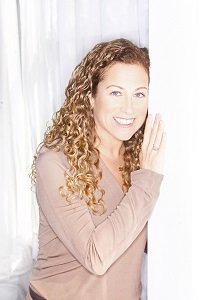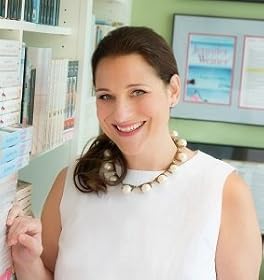BKMT READING GUIDES
All Fall Down: A Novel
by Jennifer Weiner
Hardcover : 400 pages
26 clubs reading this now
5 members have read this book
Allison Weiss got her happy ending—a handsome husband, adorable daughter, a job she loves, and the big house in the suburbs. But while waiting in the pediatrician’s office, she opens a magazine to a quiz about addiction and ...
Introduction
From #1 New York Times bestselling author Jennifer Weiner
Allison Weiss got her happy ending—a handsome husband, adorable daughter, a job she loves, and the big house in the suburbs. But while waiting in the pediatrician’s office, she opens a magazine to a quiz about addiction and starts to wonder…Is a Percocet at the end of the day really different from a glass of wine? Is it such a bad thing to pop a Vicodin after a brutal Jump & Pump class…or if your husband ignores you?
The pills help her manage the realities of her good-looking life: that her husband is distant, that her daughter is acting out, that her father’s Alzheimer’s is worsening and her mother is barely managing to cope. She tells herself that they let her make it through her days…but what if her increasing drug use, a habit that’s becoming expensive and hard to hide, is turning into her biggest problem of all?
With a sparkling comedic touch and a cast of unforgettable characters, this remarkable story of a woman’s slide into addiction and struggle to find her way back up again is Jennifer Weiner’s most masterful work yet.
Editorial Review
Author One on One with Jodi Picoult and Jennifer Weiner

Photo Credit: Adam Bouska

Photo Credit: Andrea Cipriani Mecchi
1. All Fall Down has all the hallmarks of a Jennifer Weiner book, but is a departure, tooâ??it addresses the very serious topic of addiction to painkillers. What made you want to explore this subject, and how do you imagine your readers will react?
I wanted to write about addiction because I knowâ??along with anyone who reads the papers, or People magazineâ??that itâ??s a huge problem for women. Like most people out there, Iâ??ve had the experience of seeing friends and loved ones go through it. More than that, though, addiction interested me as a symptomatic problem. When you talk to therapists and counselors, theyâ??ll tell you that addicts donâ??t have a problem with alcohol or pills, but a problem with feelings. They donâ??t know healthy ways to handle their emotions, which is why they end up in trouble with pills, or pot, or gambling, or shopping. I wanted to write about a woman whoâ??s an addict but, more than that, a woman who canâ??t handle her feelings, a woman whoâ??s gotten what looks like a happy ending, but doesnâ??t feel happy at all.
I think people come to my books for laughs, and I donâ??t want this book to feel like an after-school special. My hope is that Iâ??ve told something very sad and very real, but in the voice of a character who is funny and self-deprecating, even as sheâ??s sliding down the rabbit hole.
2. Allisonâ??s slide into addiction, and her stint in rehabâ??as well as the characters populating rehabâ??rang painfully true. You must have done a boatload of research on addiction. Tell me a few things that weâ??d be surprised to know, which you learned during your research.
What surprised me most isnâ??t how women get their pills, but how little progress thereâ??s been in terms of how to help addicts. We have rehab andâ?¦.rehab. If you go to rehab and relapse, youâ??ll be sent back for more rehab (even if it didnâ??t work the first time, or first six times). And rehabs arenâ??t always tightly regulated, there arenâ??t standards that mandate things like how much time patients spend being treated by therapists, as opposed to watched over by the â??recovery coachesâ?? like the ones Allison meets. Finally, thereâ??s a gender issue, where the â??normalâ?? addict is male, and a woman is an exception.
I hope things do get better. I hope there will be more options for recovery, options that acknowledge that all addicts have things in common, but there are important differences, too. I hope we can have a conversation about what happens when the help doesnâ??t help. After doing all this research, it was frustrating to see what happened after a Philip Seymour Hoffman or a Cory Monteith died, and social media would explode with people saying, â??Get help! Get help! Donâ??t be afraid to get help!â?? Well, these two men GOT help. We need to talk about why rehab is failing, and how it can get better.
3. Youâ??ve been quite wonderfully outspoken about the inequity between men and women in publishing. In what ways have things changed for the better? What room is there still for improvement?
Hey, you too, sister!
Things have improved. The New York Times Book Review has a woman at the helm, and the number of women on its pages, as subjects and authors of reviews, has gotten much better. Even places like Harperâ??s and The Atlantic, whose ratios have remained abysmal ever since you and I started talking about #franzenfreude and VIDA started counting, are at least aware that thereâ??s a problem, even if they donâ??t seem particularly invested in solving it.
Iâ??d love to see more places include more women. Iâ??d love it even more if the â??literaryâ?? writers who get profiled in the Timesâ??in large part because of the efforts of their bestselling sisters â??did not immediately turn around and trash â??unseriousâ?? books by women, just to make triply sure we all know that they belong in the boysâ?? club of quality literary writers.
4. One of the things I love best about you is that you use your powers for goodâ??namely, you constantly champion the writing of those starting out in publishing. Pick three unsung heroes in publishing, and tell us why we should be reading their work.
I love this question! Love. This. Question.
Roxane Gayâ??s work is getting a fair amount of attention, but if it were me Iâ??d be putting her on the front page of the New York Times Book Review, inviting her on â??The Daily Showâ?? and making her books required reading for college freshman. In six months, sheâ??s published a devastating, brilliant novel, An Untamed State, about a woman whoâ??s kidnapped in Haiti, and a trenchant, funny, wise essay collection called Bad Feminist that takes on everything from Fifty Shades of Grey to online dating to weight and desire and how men and women are in the world.
Michelle Huneven is another writer who, if the playing field were more level, would get the attention of a Franzen or a Eugenides. She writes beautiful sentences, and she tells stories about dysfunctional families, fraught love affairs, and unusual relationships.
On the commercial-fiction front, Iâ??d give you Tabitha King. She isâ??letâ??s get it out of the wayâ??married to Stephen, which means that sheâ??ll forever exist in his shadow, but she is a wonderful writerâ??funny and sly and observant and wise about people. In particular, Iâ??d recommend Pearl and One on One.
5. You and I both went to Princetonâ??Iâ??m (ahem) four years older. So: whatâ??s the craziest thing you ever did on campus?
The craziest thing I ever did at Princeton, honestly, was try to change it. When I started, in 1987, two of the eating clubs were still all-male. Only a handful of women had spoken up about it, even filing a lawsuit, and they were dismissed as belligerent feminist cranks. My friends and I turned it into an issue again, but were able to get much broader support and show that it wasnâ??t just a handful of malcontents who wanted all facets of the Princeton experience available to everyone who went there. We had male alums of the clubs marching with us, carrying posters asking why their daughters couldnâ??t join. We had professors and administrators joining the demonstrations. Eventually, we had a rally that attracted about 500 peopleâ?¦and when the clubs held their votes, they both voted, voluntarily, to admit women. It was hugeâ??one of the triumphs of my life at that point. I find myself thinking a lot about it now, in terms of the push for more inclusive book reviews, when people start saying, â??Oh, sheâ??s only in this for herself,â?? or â??she just wants the Times to pay attention to her books,â?? because, when my friends and I were pushing for Tiger Inn and Ivy to admit women, it wasnâ??t because I wanted to join either place. I wanted them to admit women because it was the right thing to do, the same way I want the Times to review more women, and acknowledge womenâ??s commercial fictionâ??itâ??s the right thing to do.
Discussion Questions
No discussion questions at this time.Book Club Recommendations
Recommended to book clubs by 4 of 4 members.
Book Club HQ to over 88,000+ book clubs and ready to welcome yours.
Get free weekly updates on top club picks, book giveaways, author events and more








